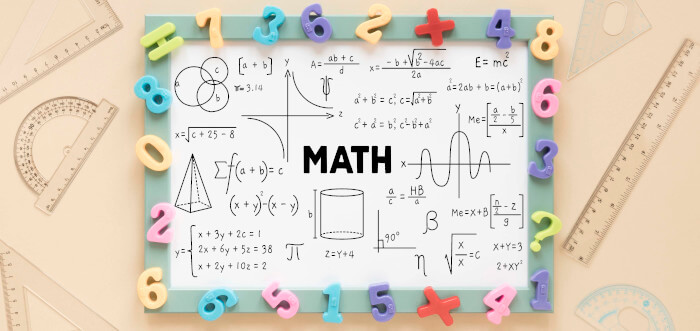SINGULAR is a Computer Algebra System for polynomial computations with special emphasis on the needs of commutative algebra, algebraic geometry, singularity theory, and polynomial system solving.
SINGULAR’s main computational objects are ideals and modules over a large variety of baserings. The baserings are polynomial rings or localizations thereof over a field (e.g., finite fields, the rationals, floats, algebraic extensions, transcendental extensions) or over a limited set of rings, or over quotient rings with respect to an ideal.
SINGULAR features one of the fastest and most general implementations of various algorithms for computing Groebner resp. standard bases. The implementation includes Buchberger’s algorithm (if the ordering is a wellordering) and Mora’s algorithm (if the ordering is a tangent cone ordering) as special cases. Furthermore, it provides polynomial factorization, resultant, characteristic set and gcd computations, syzygy and free-resolution computations, and many more related functionalities.
Features include:
- Main computational objects: ideals/modules over very general polynomial rings over various ground fields.
- Large variety of algorithms implemented in kernel (written in C/C++).
- Many more algorithms implemented as SINGULAR libraries. Advanced algorithms, contained in currently more than 90 libraries, address topics such as absolute factorization, algebraic D-modules, classification of singularities, deformation theory, Gauss-Manin systems, Hamburger-Noether (Puiseux) development, invariant theory, (non-) commutative homological algebra, normalization, primary decomposition, resolution of singularities, and sheaf cohomology.
- Intuitive, C-like programming language.
- Extensive documentation: Manual (info, ps, and html), Publications.
- Emacs user interface.
- Large set of libraries.
- Dynamically extend the functionality by loading functions written in C/C++ or some other higher programming language.
- Cross-platform support – runs under Linux, Mac OS X, and Windows.
Website: www.singular.uni-kl.de
Support: Manual, GitHub Code Repository
Developer: Department of Mathematics of the University of Kaiserslautern
License: GNU GPL v2
SINGULAR is written in C++. Learn C++ with our recommended free books and free tutorials.
Return to Geometry | Return to Computer Algebra Systems
| Popular series | |
|---|---|
| The largest compilation of the best free and open source software in the universe. Each article is supplied with a legendary ratings chart helping you to make informed decisions. | |
| Hundreds of in-depth reviews offering our unbiased and expert opinion on software. We offer helpful and impartial information. | |
| The Big List of Active Linux Distros is a large compilation of actively developed Linux distributions. | |
| Replace proprietary software with open source alternatives: Google, Microsoft, Apple, Adobe, IBM, Autodesk, Oracle, Atlassian, Corel, Cisco, Intuit, SAS, Progress, Salesforce, and Citrix | |
| Awesome Free Linux Games Tools showcases a series of tools that making gaming on Linux a more pleasurable experience. This is a new series. | |
| Machine Learning explores practical applications of machine learning and deep learning from a Linux perspective. We've written reviews of more than 40 self-hosted apps. All are free and open source. | |
| New to Linux? Read our Linux for Starters series. We start right at the basics and teach you everything you need to know to get started with Linux. | |
| Alternatives to popular CLI tools showcases essential tools that are modern replacements for core Linux utilities. | |
| Essential Linux system tools focuses on small, indispensable utilities, useful for system administrators as well as regular users. | |
| Linux utilities to maximise your productivity. Small, indispensable tools, useful for anyone running a Linux machine. | |
| Surveys popular streaming services from a Linux perspective: Amazon Music Unlimited, Myuzi, Spotify, Deezer, Tidal. | |
| Saving Money with Linux looks at how you can reduce your energy bills running Linux. | |
| Home computers became commonplace in the 1980s. Emulate home computers including the Commodore 64, Amiga, Atari ST, ZX81, Amstrad CPC, and ZX Spectrum. | |
| Now and Then examines how promising open source software fared over the years. It can be a bumpy ride. | |
| Linux at Home looks at a range of home activities where Linux can play its part, making the most of our time at home, keeping active and engaged. | |
| Linux Candy reveals the lighter side of Linux. Have some fun and escape from the daily drudgery. | |
| Getting Started with Docker helps you master Docker, a set of platform as a service products that delivers software in packages called containers. | |
| Best Free Android Apps. We showcase free Android apps that are definitely worth downloading. There's a strict eligibility criteria for inclusion in this series. | |
| These best free books accelerate your learning of every programming language. Learn a new language today! | |
| These free tutorials offer the perfect tonic to our free programming books series. | |
| Linux Around The World showcases usergroups that are relevant to Linux enthusiasts. Great ways to meet up with fellow enthusiasts. | |
| Stars and Stripes is an occasional series looking at the impact of Linux in the USA. | |
